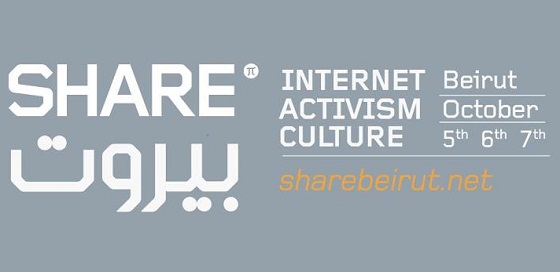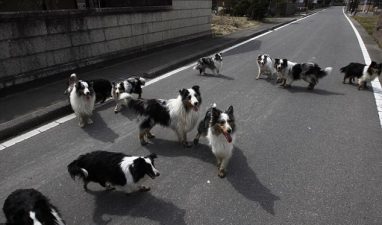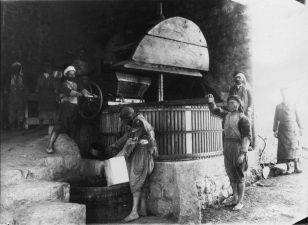 Lebanese illustartor Maya Zankoul “draws” against issues that range from pollution, electricity cuts, real estate pricing, to politics in Lebanon. She will be one of the guest speakers at SHARE Beirut.
Lebanese illustartor Maya Zankoul “draws” against issues that range from pollution, electricity cuts, real estate pricing, to politics in Lebanon. She will be one of the guest speakers at SHARE Beirut.
In October there will be a free three day conference in Beirut which will look at “digital” rights in the MENA and promote creativity. Similar to the concept of TEDx (see the TEDx Jaffa conference), a platform where people can share innovative knowledge or “ideas worth spreading,” SHARE Beirut is a hybrid event that brings together hundreds of passionate people, forward-thinkers, cultural creatives, activists and artists from the Middle East and around the world to share ideas on how to levarege on the digital media.
For three days starting on October 5, SHARE Beirut will become a huge opportunity for the Middle East North Africa (MENA) region to promote an understanding of open, decentralized and accessible forms of communication, exchange and creation. The event is coordinated by the Share Foundation, a nonprofit organization dedicated to protecting the rights of Internet citizens and promoting free access and exchange of knowledge and information.
My guess is that this will be a very successful event.
SHARE has cleverly picked up on the emerging trend of “digital empowerment” in the MENA where many believe that what fuelled the Arab Spring was the internet and social media. But although the internet may have initiated, sustained and encouraged a viral revolution, there is now an “Arab Spring online backlash” where recent legislation in the MENA is looking to censor and control what type of information can be “shared” on the net. In Iraq for example a recent bill on “information-technology crimes” includes mandatory life sentences for using the internet to “compromise” the “unity” of the state or promote “ideas which are disruptive to public order”.
Prior to the Arab spring five of the top ten most internet censored countries were from the Arab world: Saudi Arabia, Syria, Yemen, Tunisia and Egypt. After the Arab Spring, the future of internet censorship in the region is looking precarious, hopefully SHARE Beirut can help promote digital freedom.
At the conference, sixty lectures and workshops will be delivered by leading international bloggers and artists who will educate the audience on new forms of activism by using advanced technologies to create, influence and affect. Workshops and discussions will explore the fight for digital and human rights, free access to information flow , transparency and privacy.
The aim is to set new standards that will prevent any kind of oppression, censorship and surveillance for future generations in the MENA, as well as understanding the positive values the internet has to offer and the need to protect it as an open and free territory for all.
The program is inviting.
From Sami Ben Gharbia an exiled Tunisian human rights campaigner and blogger, to Ammar Abu Shady the Egyptian production director of Qabila TV, a “media incubator that engages in crowdsourcing innitiatives” to Vida Rizk founder of Aflamnah a kickstarter-like crowdfunding platform for creative projects in the Arab World to Maya Zankoul a Lebanese illustrator that “draws” against some of the daily hassles and inefficiencies found in Lebanon.
There are too many great minds to mention, but this event will definitely push forward the outspoken and creative boundaries of the MENA region.
If you are interested in attending this FREE conference, register as soon as you can before the 28th of September.
Images via SHARE



